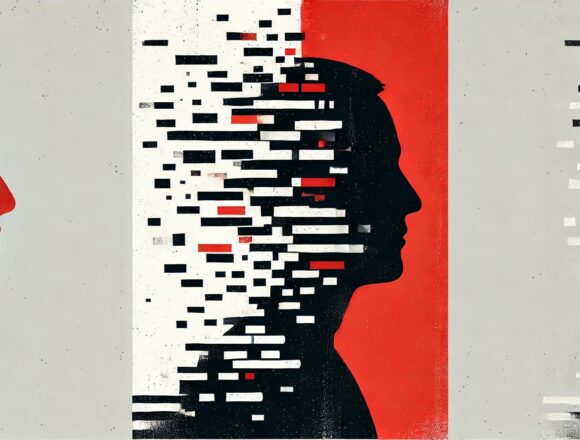Kansas's Legislative Coordinating Council approved $2.775 billion in public subsidies for a new Chiefs stadium in a 30-minute closed-door meeting—the largest stadium subsidy in American history. The Hunt family, worth $6.53 billion, will pay 40 percent of construction costs while retaining 100 percent ownership and all revenue streams. Eighty-three percent of economists oppose such subsidies, and Kansas's own failed STAR bonds projects predicted this disaster. The state will finance billionaire infrastructure while ranking 41st in education spending and leaving 150,000 residents without healthcare. Every $15 beer sold will remind taxpayers: they built the stadium, will eventually demolish it, but the Hunt family pockets every dollar.
latest
From Sundown Towns to HOAs: The Unbroken Line of American Housing Segregation
For over 130 years, American communities have employed evolving mechanisms to maintain racially segregated neighborhoods—from violent expulsions and municipal ordinances to racially restrictive covenants, federal redlining policies, and today's homeowners association governance. This investigation traces the direct, intentional line connecting sundown towns like Anna, Illinois and Kenilworth's explicit racial exclusions to modern HOA discrimination cases like Providence Village, Texas, where 600 predominantly Black residents faced displacement in 2022. Through comprehensive analysis of historical records, census data, legal cases, and academic research, the evidence reveals that while the vocabulary has changed—from posted signs warning "Don't let the sun go down" to facially neutral rental restrictions and credit requirements—the function remains identical: protecting white-only spaces and perpetuating a $3 trillion racial wealth gap rooted in government-sponsored housing discrimination.
Merry Christmas Is Made in China
American Christmas has become almost entirely dependent on Chinese manufacturing—from the 87% of decorations to 80% of toys to the inflatable Santas on suburban lawns. This $1 trillion holiday celebrating family values and tradition reveals a stark gap between what Americans claim to cherish and what their purchasing choices actually prioritize: cheap abundance over domestic production, disposability over durability, and material expression over presence. The economic, environmental, and strategic costs of this dependence continue mounting, yet political will to change remains trapped by consumer unwillingness to pay higher prices for the very values they profess to hold dear.
America’s Largest Corporations Profit from Exposing Your Data While Small Businesses Die
When Code Spaces suffered a data breach in 2014, the company shut down within weeks. When Equifax exposed 147 million Americans' Social Security numbers in 2017, it recovered fully within two years and continues operating as one of three credit bureaus controlling Americans' financial lives. This isn't coincidence—it's the predictable outcome of a system where large corporations transform catastrophic data breaches from existential threats into manageable quarterly expenses.
While 60% of small businesses fail within six months of a cyberattack, Fortune 500 companies see their stock prices recover within 53 days on average. Settlement payments work out to less than $5 per affected individual—roughly the cost of a coffee—while representing less than 5% of a single quarter's profit. Meanwhile, breached data flows into a $441 billion data broker industry that aggregates, enriches, and resells personal information, creating a secondary market where stolen identities become purchasable intelligence.
The disparity isn't accidental. Through coordinated lobbying campaigns, corporations have shaped privacy legislation in over three dozen states, registered hundreds of lobbyists, and spent over $125 million to ensure that opt-out frameworks replace consumer consent, that private rights of action are eliminated, and that penalties remain negligible. When the CFPB attempted to regulate data brokers in 2024, the rule was withdrawn five months later. The result: a system designed to extract value from personal information rather than safeguard it, where small businesses die from the same breaches that large corporations absorb as rounding errors.
This investigation examines how America's largest corporations have transformed data security from a mandate into a choice—and why they consistently choose profits over protection.
The Amnesia Killing Our Children
Adults born in the 70s, '80s '90s—the most vaccinated generations in American history—are now leading a movement to ensure their children don't receive the same protection that kept them alive. They attended schools where immunization was mandatory, benefited from herd immunity they now actively undermine, and never saw a classmate in an iron lung because vaccines worked. Now they share memes about "government propaganda" while their own vaccine scars fade on their shoulders—physical evidence of the system they reject. This selective amnesia isn't just ironic. It's lethal. As measles outbreaks surge across the United States and vaccination rates plummet, children are dying from diseases we'd already defeated. The danger isn't the vaccine. It's a vaccinated generation's willingness to doom the next generation because they've forgotten why those childhood shots were necessary in the first place.
read more
Echoes of Extremism—The Rise of Alt-Right Radicalization
In recent years, societies worldwide have observed an unsettling uptick in acts of violence and terrorism. These aren't isolated to one geographical location or culture but transcend boundaries and ideologies, sowing fear and confusion. Several incidents have not only made headlines but have also imprinted themselves in the collective consciousness of the global community.
Unmasking Disparity—Examining the Modern Gender Wage Gap
The gender wage gap represents a significant and deeply ingrained issue in societies worldwide. This comprehensive dissertation seeks to dismantle...
Understanding the Complexities of Gender Identity
In this dance of words, we invite you to waltz with us beyond the traditional two-step of 'male' and 'female'. This article is a vibrant exploration and demystification of gender and sex, far beyond the confines of the binary. So, grab your curiosity, let's unpack preconceptions, dive headfirst into the kaleidoscope of human identity, and emerge enlightened, seeing beyond the simplicity of pink and blue. Buckle up, dear reader, as we voyage on this gender journey!
Reagan’s Legacy: Catalyst for the Modern Downfall of America
The handling of crucial matters such as the AIDS epidemic, criminalization of homosexuality, arms deals, and mental health policy, further compound the complex legacy left by his presidency. The objective of this work is not to vilify Reagan, but rather to critically analyze the long-term effects of his policies and actions, fostering an understanding of how they continue to impact our socio-economic and political landscape to this day.
Triggered: How Guns Divide, Not Defend, America
In a nation where the right to bear arms is woven into the very fabric of its constitution, the United States stands as a stark exemplar of a profound paradox. For centuries, Americans have lauded their Second Amendment rights as a symbol of freedom and self-defense. But as the years have unfolded, this seemingly unshakeable belief has come under increasing scrutiny. Today, we explore a narrative that poses a stark challenge to the traditional perspective: that the proliferation of guns in America serves not to protect, but to foster a culture of paranoia, division, and an alarming increase in needless death.
Joe Rogan Is Selling Lies and Business Is Booming
Behind Joe Rogan’s façade of curiosity and neutrality lies a troubling pattern: profitable indifference to truth and reckless promotion of misinformation. By repeatedly hosting controversial figures and amplifying dangerous falsehoods, Rogan’s podcast has eroded public trust and exacerbated America’s divisions. Is Rogan knowingly exploiting this chaos for profit, or simply indifferent to the real-world consequences of his actions? Either way, America is left to reckon with the harmful legacy of his misinformation empire.
Redefining Freedom: Exploring the Paradox of Diversity and Unity in America
Why does a nation that prides itself on freedom and bravery sometimes display intolerance and fear towards its own diverse populace? What factors have contributed to this sentiment, and how can understanding them help bridge this chasm between our ideals and behaviors? This article aims to dissect these questions, promoting introspection and challenging readers to align American behavior more closely with its lauded ideals.
Examining the Corporate Profit Paradox: An In-Depth Analysis of Wage Disparity, Shareholder Prosperity, and Dwindling Worker Benefits
Income and prosperity disparities have long characterized the socio-economic landscape of America. At the heart of this issue lies the growing chasm between the compensation packages of chief executive officers (CEOs), the dividends of shareholders, and the stagnating wages of the average worker.
The Resilient Life of Mary Ellen Pleasant: Charting Success Amid Controversy
In the annals of American history, few figures are as intriguing and multifaceted as Mary Ellen Pleasant. Born in the early 19th century, her life encompassed an era of enormous change and challenge. She navigated through the vicissitudes of a society marked by slavery, gold rushes, and burgeoning civil rights movements, emerging as a powerful entrepreneur and a fearless advocate for African American rights.
view more
featured
The Complete Guide to Maintaining Healthy Digestion
Maintaining optimal digestive health is essential for overall wellbeing, affecting everything from energy levels and immune function to mental health. This comprehensive guide explores five evidence-based strategies for promoting a healthy gut: eating a high-fiber diet rich in diverse plant foods, staying properly hydrated throughout the day, engaging in regular physical activity, managing stress through mindfulness and relaxation techniques, and limiting ultra-processed foods containing harmful additives. By understanding the science behind the gut-brain axis and the crucial role of the microbiome, you can implement practical lifestyle changes that support digestive wellness and reduce the risk of chronic inflammatory diseases.
Feed Your Face, How What You Eat Shows Up on Your Skin
You can spend a small fortune on serums, but if your diet’s running on caffeine and convenience, your skin will eventually call your bluff. Skincare starts long before the jar — it starts on your plate.
Your nutritionist and dermatologist will agree on one simple truth: your skin is an organ that eats what you do. Everything from your morning smoothie to your midnight snack can nudge it toward calm, clear radiance — or tip it into irritation and dullness. Let’s take a tour through what your skin actually wants from you — and why.
A Science-Backed Approach to Radiant Complexion
You can spend a fortune on serums, but if your diet's running on caffeine and convenience, your skin will eventually call your bluff. This comprehensive, science-backed guide explores the profound connection between nutrition and skin health, revealing how omega-3 fatty acids reduce acne by 96% in deficient patients, why vitamin C is essential for collagen synthesis, and how the gut-skin axis influences everything from inflammation to radiance. Backed by peer-reviewed research and clinical trials, discover the foods that transform your complexion from the inside out—because you can't out-serum a bad diet, but you can absolutely glow your way to great skin.

Disinformation, Division, and the Fight for Unity Amid the COVID-19 Pandemic
As we grapple with these dual pandemics, an old adage reverberates with renewed relevance - "United we stand, divided we fall". The phrase, a rallying cry in the face of adversity, has never held more significance. Today, it stands not just as a statement of resilience but as a stark warning. For it is not only the virus we fight but also the societal and political schisms that have been laid bare and further fueled by the pandemic and the disinformation accompanying it.

Where the Internet Came From: Why You’re Able to Read This Article
30 years ago, the heart of the WWW had a pressing need: a standard way to create and format documents. To address this, Berners-Lee introduced HTML (HyperText Markup Language). While the idea of "hypertext" had been explored previously by visionaries like Ted Nelson, it was Berners-Lee's practical application that set the stage for a global information revolution.

Conquering Misinformation and Embracing Truth in the Digital Age
In the age of information overload, where conspiracy theories are becoming more prevalent, it is more critical than ever to differentiate between knowledge and uninformed opinions. This article will explore the psychological roots of conspiracy beliefs, the importance of cultivating knowledge, and effective strategies for managing emotions when faced with conflicting viewpoints. Through this exploration, we aim to equip readers with the tools they need to navigate the complex information landscape responsibly, promote informed dialogue, and ultimately, contribute to a more discerning and truth-oriented society.